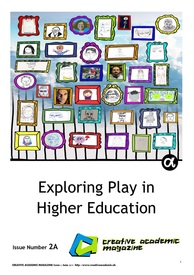
Sometimes it takes a child to remind us of the value of play. This weekend my four grandsons 2 to 8 years old came to play with each of other and my niece's children and play they did from the moment they came to the moment they left us. All they needed was a space - the garden, a few things to play with, and each other. And the role of adults was to not get in the way and help them play safely. It was a facilitating role and occasionally we were admitted into their games - or we became part of their game. It was a joy to witness and experience their playfulness and happiness.
And their learning was in learning about and with each other, in sharing their imaginations and personal knowledge, and in developing new skills and confidence - like my niece's nearly two year old learning to bounce on a trampoline, or my three year old disabled grandson learning a new word, or my 8 year old grandson hanging upside down on the swing for the first time. Small things in the grand scheme of life but important things for that moment in their life.
And to cap it all my son in law called from Dubai to tell me that I had a new grandson - life doesn't get much better than this does it?
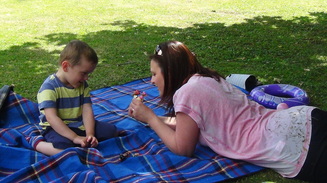
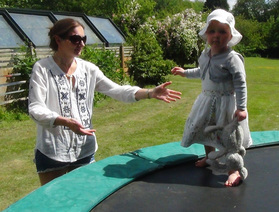
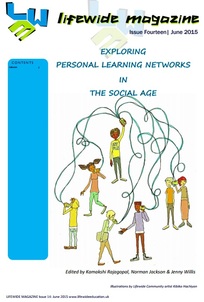
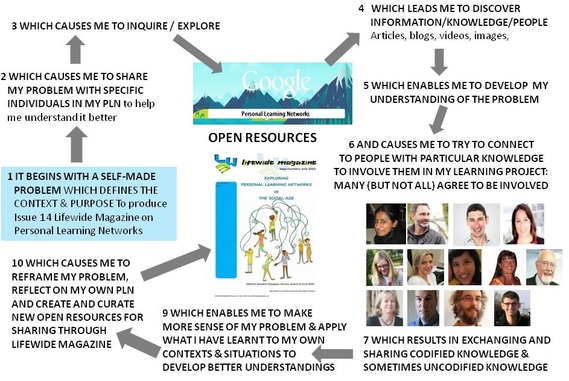




 RSS Feed
RSS Feed